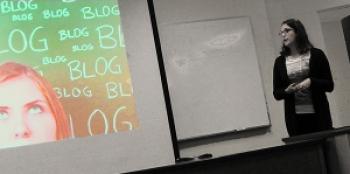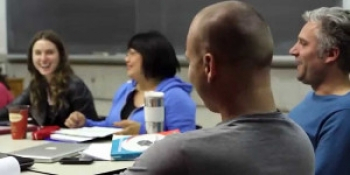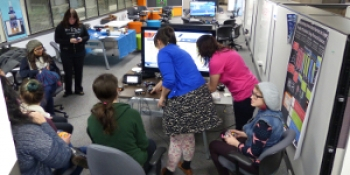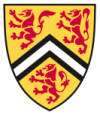Welcome! The Department of English Language and Literature at the University of Waterloo offers unique undergraduate and graduate programs covering the study of literature, rhetoric, professional writing, and digital media. Our professors have national and international reputations in these areas, and we boast many awards for teaching. Graduates of our B.A. and M.A. programs find successful careers in industry, law, government, teaching, medicine, communication design, and entrepreneurship, often getting their start with our co-op program; they also go on to advanced studies in English. Graduates of our PhD program hold academic and non-academic positions in Canada and across the world.
You are reading: English language and literature major
Undergraduate Studies

Whether you want to explore literature, digital media, political discourse, or technical communication, our diverse undergraduate degrees and programs allow you to pursue your interests. You have a wide variety of degree options, and with our integrated co-op option, you can combine study and work experience.
Graduate Studies

We offer MAs in Literary Studies, Rhetoric and Communication Design, and Experimental Digital Media. Our PhD offers a unique integration of literary studies with such fields as rhetoric, new media, and discourse analysis. Our degrees will prepare you for work in and beyond the academy.
Research

Our department features internationally known scholars who conduct research in a variety of fields, including literary studies, digital media, and rhetoric and professional communication. The department is also affiliated with a number of research bodies, including the Critical Media Lab, the Games Institute, First Person Scholar, the Waterloo Directory of Victorian Periodicals, and the Canadian Journal of Disability Studies.
Teaching and Learning

Teaching is central to our department, and our faculty and graduate students include many award-winning instructors. Class sizes in the department are small, and your professors are dedicated, dynamic instructors who will give you the academic tools you need to follow your intellectual passions and the individual attention you need to grow as a scholar.
Find out more
To find out more about our department, follow any of the links above or in the main menu. Our faculty and staff are also happy to talk with you via email, over the phone, or in person to answer any questions you might have.
For undergraduate inquiries
Contact our undergraduate administrator, Jenny Conroy, or our acting undergraduate chair, Randy Harris.
The English undergraduate office is located in Hagey Hall room 251.
For graduate inquiries
Contact our graduate coordinator Agata Jagielska, or our graduate chair, John Savarese.
Read more: Product Information – Themes In Literature Quiz And Test Key
The English graduate office is located in Hagey Hall room 250.
 |
Event notices, general department news, and English-related links from both within and outside the department. |
 |
News and events for graduate students and faculty, English-related job advertisements, and calls for papers and articles. |
 |
Words in Place (our department blog): a wide variety of articles on people and events in the department, including interviews with undergraduate and graduate students. |
 |
Videos of department events and student projects. |
 |
Our Department Newsletter: a periodic summary of what”s been happening with faculty and students in English Language and Literature. |
The Department of English acknowledges that we are living and working on the traditional territory of the Attawandaron (also known as Neutral), Anishinaabe and Haudenosaunee peoples. The University of Waterloo is situated on the Haldimand Tract, the land promised to the Six Nations that includes six miles on each side of the Grand River. Read More >>
Webmaster: Bruce Dadey

The University of Waterloo acknowledges that much of our work takes place on the traditional territory of the Neutral, Anishinaabeg and Haudenosaunee peoples. Our main campus is situated on the Haldimand Tract, the land granted to the Six Nations that includes six miles on each side of the Grand River. Our active work toward reconciliation takes place across our campuses through research, learning, teaching, and community building, and is centralized within our Indigenous Initiatives Office.
Categories: literature